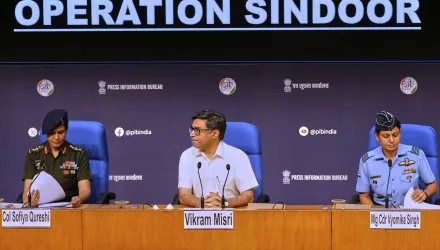It's not just Syria: Russia has been quietly building power throughout the Middle East — and challenging America's superpower status.
In his masterful account Strategy: A History, Sir Lawrence Freedman defines strategy as "the art of creating power." This is a useful lens through which to consider one of this year's key geopolitical trends: Russia's return to the Middle East.
Apart from its close ties to the Syrian regime, which date back to the 1970s, Moscow has had no substantial role in the Middle East since 1972, when President Anwar Sadat kicked Soviet advisors out of Egypt.
Why return now? At a general level, it's clear that Russian President Vladimir Putin wants to challenge the notion of a U.S.-led world order and encourage the return to a multipolar one, though there are certain self-imposed constraints on his ambitions. Although he has intervened in Georgia and Ukraine, he doesn't seem willing to start a wider war by attacking any Eastern European states that are already members of NATO. In the Middle East, however, Putin has a theater to undermine Western influence, and to create power for himself, without the risk of triggering a war with the West....
Continue reading (log in may be required): http://foreignpolicy.com/2016/11/02/vladimir-of-arabia-putin-russia-middle-east/
Simpson, Emile. “Vladimir of Arabia.” Foreign Policy, November 2, 2016




